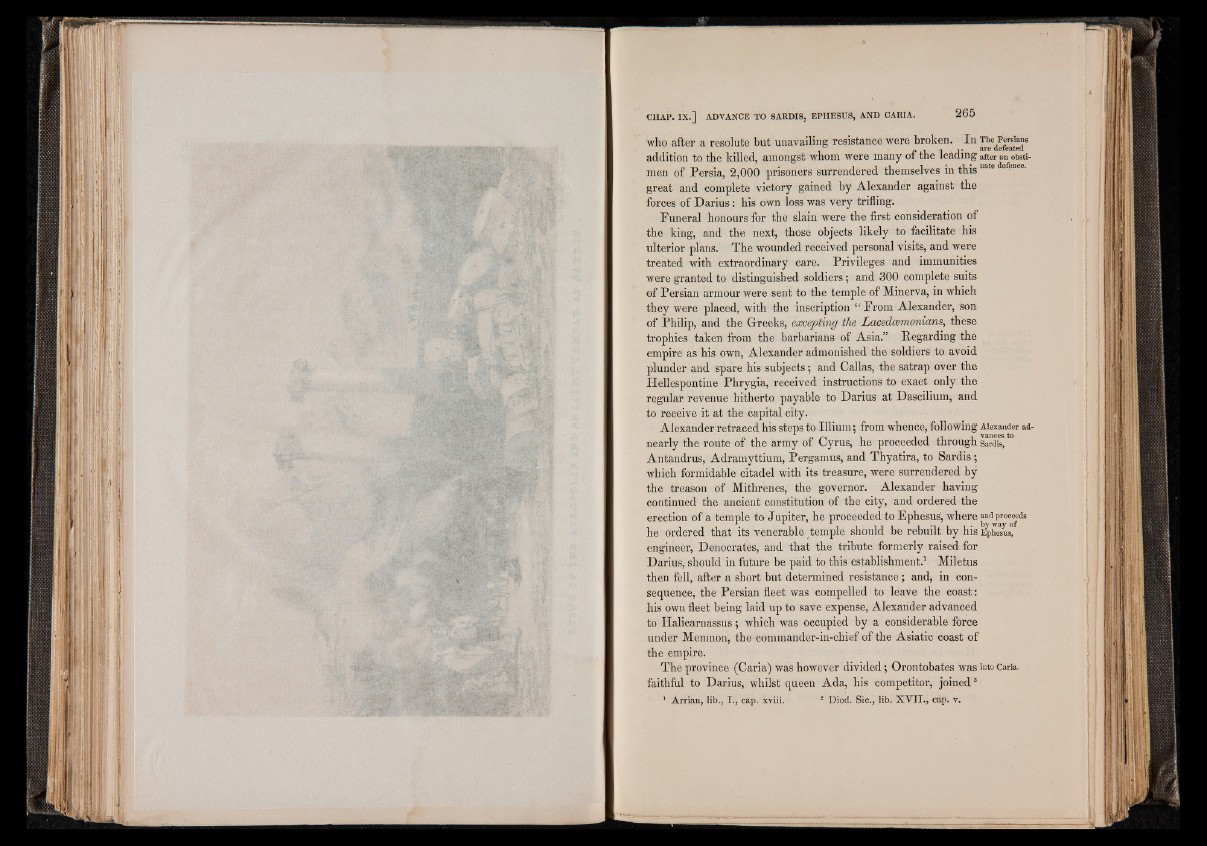
who after a resolute but unavailing resistance were broken. In The Persians
, n -y I i» are defeated addition to the killed, amongst whom were many 01 the leading after an obsti-
men of Persia, 2,000 prisoners surrendered themselves in this nate e ence'
great and complete victory gained by Alexander against the
forces of Darius: his own loss was very trifling.
Funeral honours for the slain were the first consideration of
the king, and the next, those objects likely to facilitate his
ulterior plans. The wounded received personal visits, and were
treated with extraordinary care. Privileges and immunities
were granted to distinguished soldiers; and 300 complete suits
of Persian armour were sent to the temple of Minerva, in which
they were placed, with the inscription “ From Alexander, son
of Philip, and the Greeks, excepting the Lacedcemonians, these
trophies taken from the barbarians of Asia.” Regarding the
empire as his own, Alexander admonished the soldiers to avoid
plunder and spare his subjects; and Callas, the satrap over the
Hellespontine Phrygia, received instructions to exact only the
regular revenue hitherto payable to Darius at Dascilium, and
to receive it at the capital city.
Alexander retraced his steps to Illium; from whence, following Alexander ad-
nearly the route of the army of Cyrus, he proceeded through Sardis,
Antandrus, Adramyttium, Pergamus, and Thyatira, to Sardis;
which formidable citadel with its treasure, were surrendered by
the treason of Mithrenes, the governor. Alexander having
continued the ancient constitution of the city, and ordered the
erection of a temple to Jupiter, he proceeded to Ephesus, where andwparocoefeis
he ordered that its venerable temple should be rebuilt by his Epi2L°
engineer, Denocrates, and that the tribute formerly raised for
Darius, should in future be paid to this establishment.1 Miletus
then fell, after a short but determined resistance; and, in consequence,
the Persian fleet was compelled to leave the coast:
his own fleet being laid up to save expense, Alexander advanced
to Halicarnassus; which was occupied by a considerable force
under Memnon, the commander-in-chief of the Asiatic coast of
the empire.
The province (Caria) was however divided; Orontobates was ¡»to Caria.
faithful to Darius, whilst queen Ada, his competitor, joined2
1 Arrian, lib., I., cap. xviii. ! Diod. Sic., lib. X V II., cap. V.